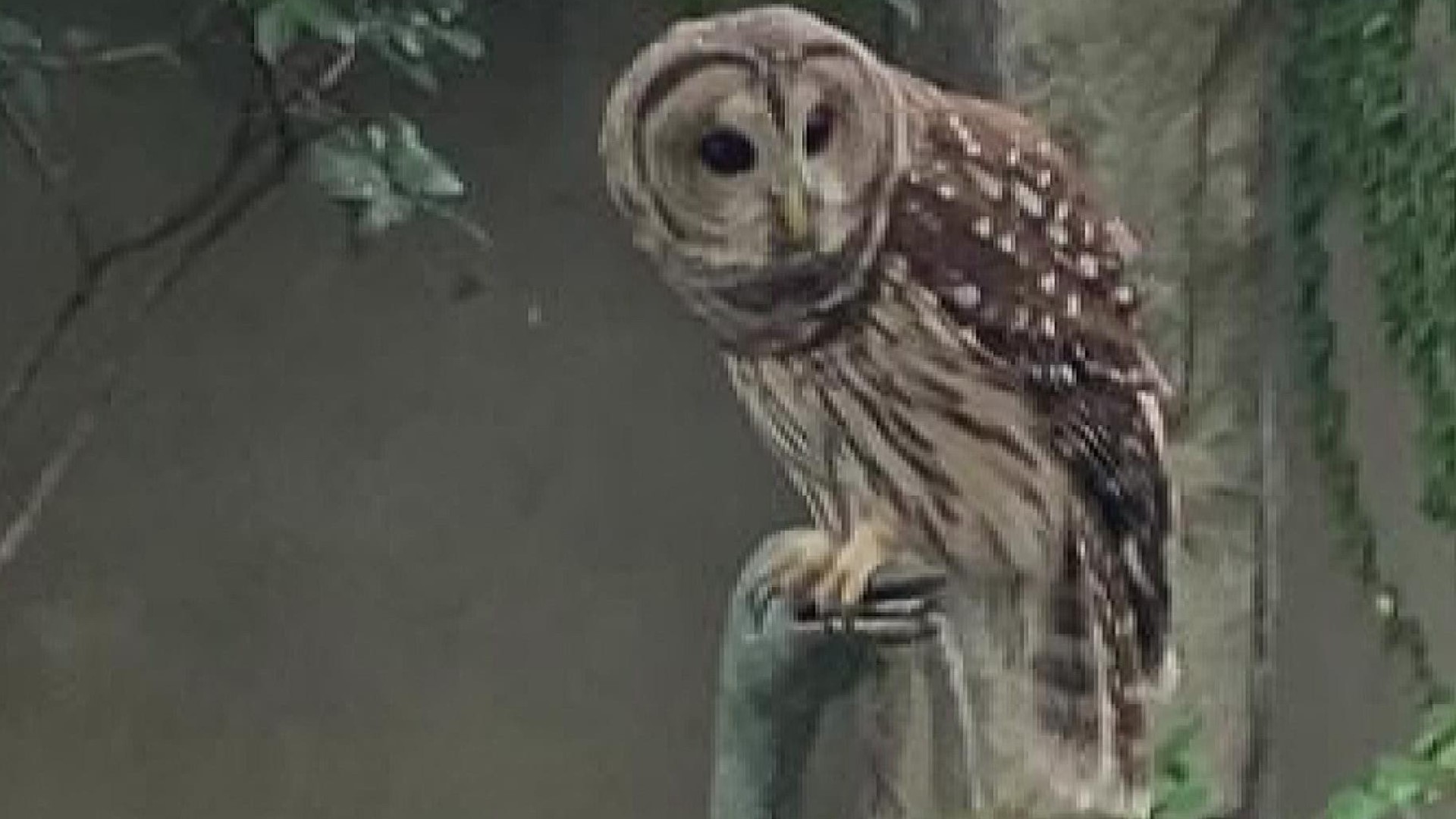ATLANTA — For more than seven months, some residents of Brookwood Hills in south Buckhead say they won't leave their houses for walks in the early morning or at night without protective gear for fear of being attacked.
"I'm terrified to go outside because of this thing," said Stephanie Oppenheimer. "I feel trapped in my house."
"It always comes from behind, so it's not like you see it coming," said Elizabeth Buyarski.
The two neighbors said an owl has terrorized their neighborhood since September.
"Sometimes it would swoop and get all of them, sometimes it would take somebody's hat, sometimes it would attack all three people with its talons. It is not scared of humans," said Oppenheimer.
Oppenheimer said the owl swooped down on her during an early morning walk.
"It felt like I had been hit from behind with a bat," said Oppenheimer.
According to a neighborhood poll, more than 80 other attacks have been recorded within a few blocks radius. And while it usually happens when it's dark, there have been instances during the day. Sometimes they say it goes after individuals and, other times, groups.
"Unfortunately about a month ago it got a bunch of kids waiting for the school bus," said Buyarski.
To stay safe, these neighbors are even wearing protective gear.
"A lot of people started wearing their bike helmets," said Buyarski.
"People are walking down the street with umbrellas, with bats, something to protect themselves," said Oppenheimer.
The Department of Natural Resources confirmed it is a barred owl, but they don't think this owl is protecting a nest. They think it has imprinted on humans.
"This owl was taken in as a chick or fledging and somebody raised it and released it...so it's swooping and not understanding why the person doesn't want it close to them," said DNR's Kaitlin Goode.
Goode says imprinting is a lifetime bond, so there's not an easy solution. She hopes this ordeal serves as a cautionary tale.
"Don't' touch the baby animals," said Goode.
Since this owl has imprinted on humans, DNR says that makes it more challenging to catch him. But when they do, they'll take him to a remote area where he has no contact with humans. Keep in mind, that could take weeks in this case.
DNR says if you spot any baby animal that looks like it's in distress, give it 24 hours for the parents to come back. If they don't, then contact DNR at gadnr.org.

